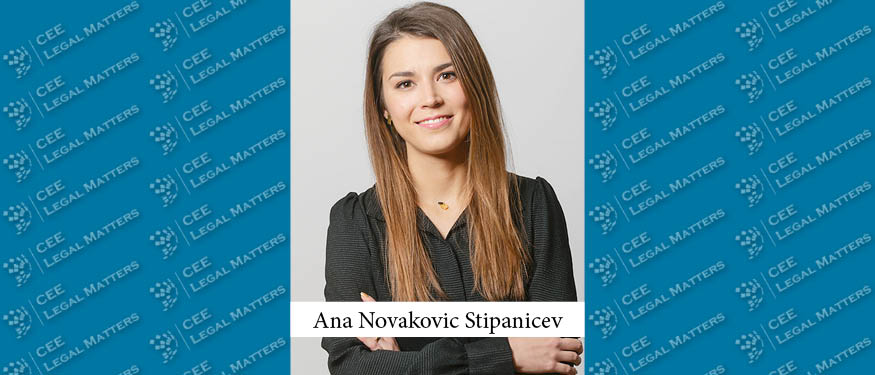It’s been a dynamic year for Croatia according to Kovacevic Prpic Simeunovic Partner Ana Novakovic Stipanicev, who highlights robust M&A activity, political stability fueling investor confidence, and key regulatory developments as reshaping sectors like energy, real estate, and public procurement.
“It has been a busy year, particularly with M&A activity across multiple sectors,” Novakovic Stipanicev begins.”Throughout 2023, and especially in Q4, we’ve seen a noticeable uptick in transactional work as clients push to close deals before year-end. The sectors that stood out include retail, wholesale, pharmaceuticals, IT, construction, and hospitality.” Moreover, she indicates that the energy sector has “also been active in terms of interest, though many projects are currently stalled. The reason for this stagnation is the government’s delay in adopting the necessary secondary legislation – until this issue is resolved, a significant number of energy projects remain pending, despite a strong pipeline.”
Still, all that being said, Croatia continues to be quite attractive for foreign direct investment. “We’re seeing both strategic buyers and private equity funds remaining active,” Novakovic Stipanicev continues, indicating Croatia’s political stability as one of the key drivers. “The same party that was in power before winning the parliamentary elections earlier this year, continuing nearly a decade of consistent governance. This continuity translates to predictability in policies, which is critical for foreign investors.” Another factor is rising GDP. “Combined with a relatively stable political environment, it has created a sense of confidence that attracts investors looking for opportunities in a dynamic market. Of course, we’re also seeing external drivers – European funds and private equity activity – that are contributing to sustained interest, particularly in sectors such as public procurement, IT, and hospitality.”
Novakovic Stipanicev reports on a real estate tax overhaul. “This tax has been attempted before but collapsed under political and public scrutiny. However, at the beginning of December, the government finalized and voted on the necessary regulations, and the law is now in full effect.” As she puts it, the logic behind the tax is to address Croatia’s high real estate prices, which are driven by both short-term tourism rentals and underutilized properties. “There’s a clear discrepancy between the average person’s purchasing power and property prices, leaving many homes vacant year-round, while simultaneously driving up acquisition and rental costs. With the introduction of this new tax, the government is trying to realign incentives and stimulate long-term housing solutions.” Still, the big question now is “how this will play out in practice – whether more properties will hit the market and how prices will shift. The effects on tourism and hospitality remain to be seen next season, but keeping properties empty year-round just to capitalize on summer rentals will no longer be viable.”
Additionally, Novakovic Stipanicev reports a major development involving a ruling from the European Court of Justice. “The ECJ ruling in the Kolin case has sparked a lot of legal uncertainty. This case arose from a Turkish company bidding for a public procurement contract in Croatia’s railway construction sector — after losing, they appealed, and matters ultimately escalated to the ECJ.” However, the ECJ did not decide on the substantive preliminary questions; instead, it raised a broader issue: the participation of bidders from third countries – those without reciprocal free trade agreements with the EU – in public procurement procedures. “The court essentially questioned whether these companies should enjoy the same legal protections as EU entities and what remedies would be available to them. This ruling has significant implications not just for Croatia but across the EU,” Novakovic Stipanicev explains, highlighting the particular impact this might have for Croatia, where companies from non-EU countries regularly participate in tenders, especially in the construction sector. “The ruling leaves contracting authorities in a difficult position, as they must determine how to proceed with such bids going forward; with no national regulation or case law implementing the ruling yet, uncertainty remains a challenge.”
Source link : http://www.bing.com/news/apiclick.aspx?ref=FexRss&aid=&tid=676407db069245de91f9c909098262ee&url=https%3A%2F%2Fceelegalmatters.com%2Fcroatia%2F28306-steady-sailing-for-croatia-a-buzz-interview-with-ana-novakovic-stipanicev-of-kovacevic-prpic-simeunovic&c=4582786268583941561&mkt=de-de
Author :
Publish date : 2024-12-19 02:56:00
Copyright for syndicated content belongs to the linked Source.
